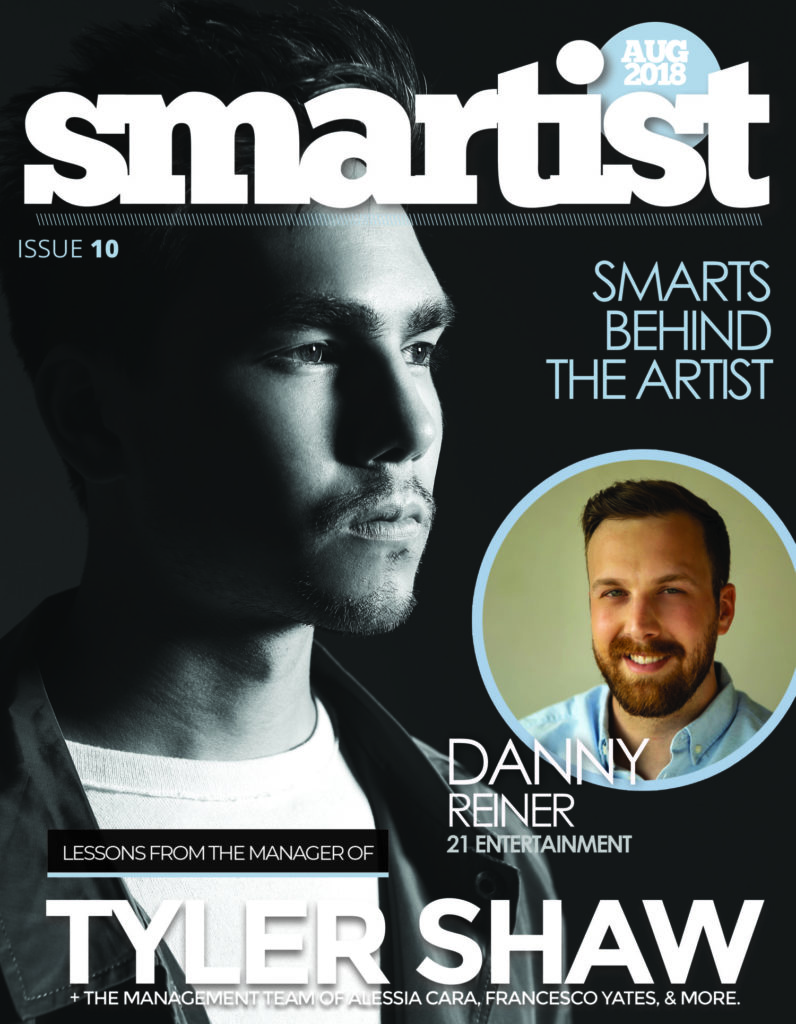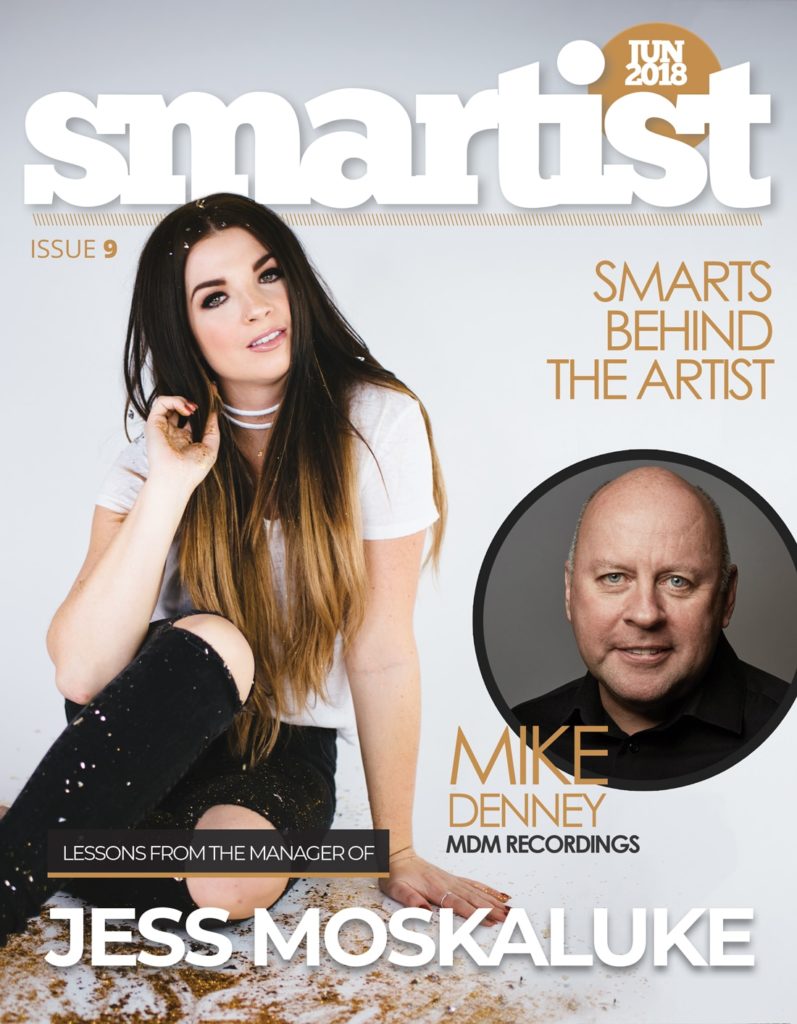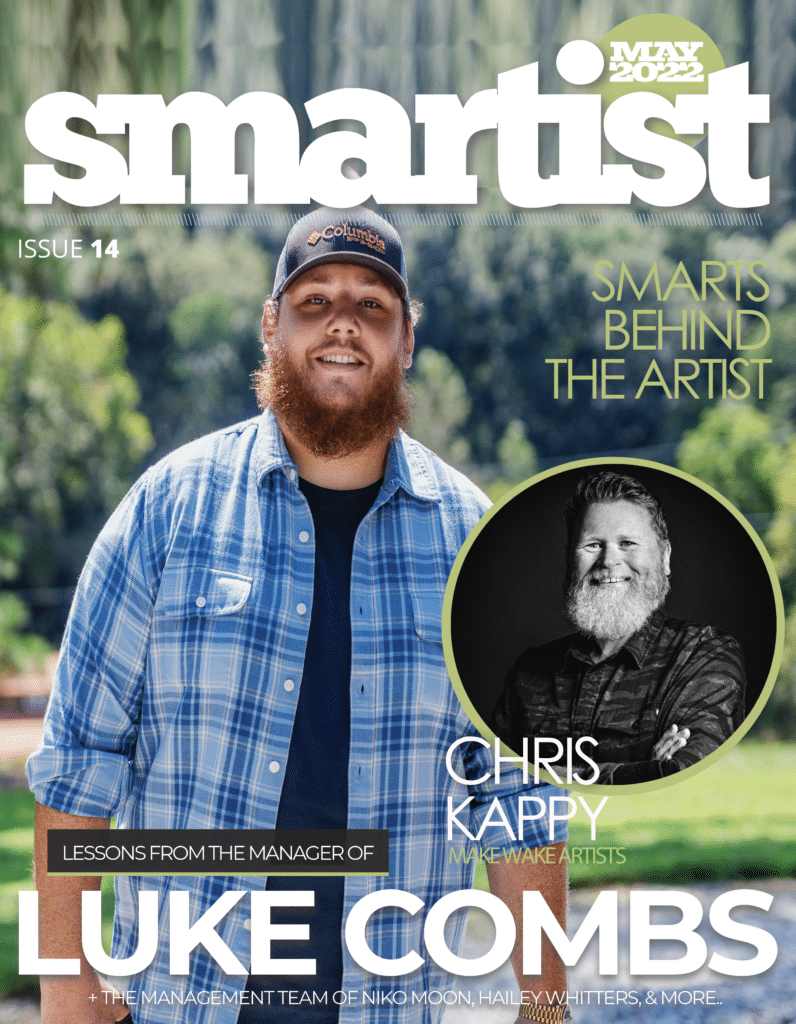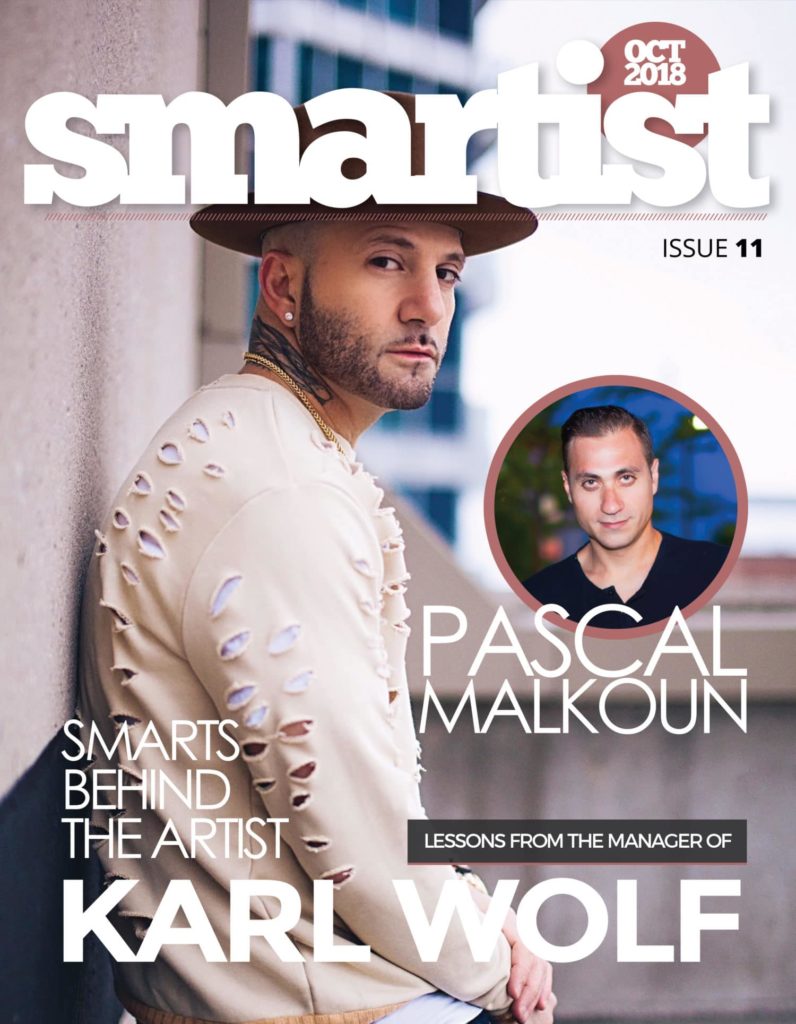How To Book A Tour For Your Band In 7 Steps

How To Book A Tour For Your Band In 7 Steps
https://youtu.be/NzfeH9Ak93Y
Why and When To Go On Tour
If you’ve already built up a following in a certain market, than it might be time to expand beyond that market.
Generally, artists go on tour to help support and market a recent album release or sometimes even a single that might be getting massive traction on the radio or streaming platforms. This way, existing fans get to see you perform live after they’ve already listened to your new music, and new fans get to discover you from attending shows in their hometowns with their friends.
Let’s say at this point:
A) You’ve already built up a following in your town/city, and now you’re ready to perform in surrounding cities.
And/Or
B) You’ve built up a following throughout your home Province/State, and now you’re ready to perform in surrounding Provinces/States.
It’s often important to play your local markets first, and then make your way around your country – but for some artists it ends up working out better for them to tour another country, gain a reputation there, and then back home. This one depends on your genre, where your fans are, and what cultures and markets tend to pick up your vibes.
Nonetheless, this “local” following is gauged by the amount of tickets you sell at the live shows you’ve already been performing. But it can also be proven by checking your online statistics. Check Facebook, Spotify, Google Analytics, and any other kind of geographical stats you can find about your fans. Once you’re aware that you have fans in surrounding markets, than it might be time to book yourself a tour!
Who Books The Tour
When you have a booking agent, they book the tour with the guidance and approval of the manager and artist. When you don’t have an agent, the manager books the tour with the guidance and approval of the artist. And when you don’t have a manager, the artist books the tour themselves. All of this also depends on the relationships between the three parties. Sometimes artists are very hands on, and sometimes they aren’t. It’s up to you how you develop the working relationships with your team.
How To Book Your Tour
Step 1: Search for Venues and Promoters
Firstly, don’t try to re-invent the wheel. There are many artists and bands before you that have done exactly what you’re trying to do. Take advantage of that. I’m sure you’re aware of other artists that can relate to your sound, yes? Check out where they’ve toured/performed recently to get an idea of which venues would work for your sound. Bandsintown is a great place to start. Check the routing for your sound-alike artists on their Bandsintown accounts. If you can’t find much info from other bands routes get to work on Google.
Create an excel sheet, unless you have a proper database system, and fill it with names, venues/promoters names, locations, emails, links to the contact forms from the website if no emails are given, and a list of ideal dates that you’d like to be in each location. If you don’t have their names right off the bat, be sure to add them into the document when they respond to your email. It’s important to remember people’s names in order to build a relationship with them. Get to know these people – talk to them on the phone, visit their venues and meet them in person, add them on LinkedIn, etc. Always remember this is a relationship business.
Promoters and Venues 101: Promoters are the people who hire your band for a show, and then promote it to their contacts/audiences in that area. Sometimes, the promoters own the venues, sometimes they rent them. If you’re not dealing with a promoter, you’ll be looking to deal with the venue bookers/buyers or venue owners.
Step 2: Find Out Where Your Fans Are
Analytics baby! Check your Facebook stats, Spotify stats, Instagram stats (if you have a business profile – which you probably should if you don’t), email list stats (eg. MailChimp), and Google analytics for WHERE your current fans are located and try to get shows in those areas. Each of these platforms has information showing you in which cities your audiences are based. Keep track, write it down, and use it for information to help book your shows in those cities.
Step 3: Draft a Routing
The routing (which cities and in which order) will ultimately depend on the availability of the venues, so the sooner in advance you book the better chances you have of getting what you want. Nonetheless, you’ll still want to draft a routing before contacting the venues and promoters. If they don’t have the date you want, ask for any surrounding dates that are available, and re-route as you get offers. For 50-500 capacity venues you’ll want to book your shows anywhere from 2-6 months in advance and for 500+ you’ll want to book 6-12 months in advance.
Again, don’t try to reinvent the wheel. Go back to your similar-sounding artists venue list and routing lists and if their routing makes sense then simply try to copy it. Set out the dates you’d like to be on tour, and how many days a week you can perform without burning out. The more shows you book the more likely you are to break-even or come out with some positive cash flow, but you’ve also got to include breaks for both vocals and driving time. So, as a rule of thumb, try to book about 5 shows a week.
Additionally, try to make the most efficient routing as possible. Check Google Maps for how long it’ll take to get from place to place and plan for that accordingly. Try not to drive back and forth. Again this is dependent on the availability of the venues, but if you can plan a straight route, it’ll save you time and money on gas and accommodations.
Step 4: Draft Your Show Booking Request Email
Subject: [Band Name] in [City Name] on [Suggested Date]
Date and Location: In the body of the email note that your band will be on tour for certain selected dates, going from certain location to location, and that you’d like them at [venue] on [date] and if it’s not available to suggest other dates.
Package: Note what the package (performance) includes, such as the length of the set(s), the type of music, any noteworthy or descriptive instruments, what kind of vibe it is, the artist names, if there’s a supporting act already included, etc.
Artists Info: Then link to artists information – website link, youtube and/or soundcloud, facebook, bio, reviews. If this is all summarized on the managers website, then simply link to the bands page on the management companies website.
Audience Proof: Prove you have an audience in that market: if you’ve already got a good following in [city], note that in the email – giving numbers such analytics proof, email list proof, etc. will definitely help.
Noteworthy: Then include a ‘noteworthy’ section – including any recent awards, contests, special funding or other notable comments about the artists.
Post-Email Follow up: Put a note in your calendar to follow up (earliest) 7 days later by phone or email if you don’t have their number.
**WARNING: Since you’ll be sending essentially the same email to all venues/promoters, you’ll be doing a lot of copy and pasting and forwarding, so MAKE SURE you change the email subject, and the names of venues and dates within the email. You’ll look partially (or fully) stupid if you don’t. I’ve done it. ;|
Step 5: Negotiate Your Agreement
Buyers can’t afford to make mistakes and lose money on your show, so if you’re brand new to the market don’t expect to make any money. If you work hard to get a good audience, this pretty much guarantees a return booking for a potentially better deal. The more fans you have coming out to the show, the better chances you have of negotiating a better deal next time. If it’s a ‘new music night’ or a ‘no cover night’ at the venue, sometimes they offer you gas money, or a split of the door sales with all the bands on the bill.
When you get an offer from the promoter or venue, review it for accuracy and fairness. As a beginner or newer artist, you can either expect to be paid nothing other than some food a drink tickets, or you can expect to be paid a guaranteed fee anywhere from $250 – $1500 per night depending on your market standards. Some venues offer a ‘potential’ cut of the ticket sales if there’s an entrance fee. ‘Potential’ means if the tickets exceed the guarantee amount, you have the chance to earn over and above the guarantee.
If you have an agent, it’s their responsibility to collect a 50% deposit in advance of the show from the promoter/venue to secure your performance – if you don’t have an agent – try to get this deposit into the offer.
Most smaller venues of 50 – 500 capacity (where you’ll most likely be playing if you’re reading this), allow artists to keep 100% of merchandise sales, but the artist has to manage the merch tables themselves. Whereas, larger and major venues have in-house merchandise staff, and can take cuts of your profits.
Step 6: Draft A Budget
Once you’re well aware of your performance guarantees and have negotiated each show, draft your budget. Keep your expenses fixed and try to spend less than projected.
If you want to come out on top, it’s more efficient to cut expenses instead of trying earn more. This is because the more you earn, the more you payout to your managers and agents (if their agreements are based on GROSS revenue or gross ticket sales). If you just cut expenses, that is more money in your (the artists) pocket. As a good manager (if you’re the manager reading this), than you’ll want to help your artist keep their expenses down.
Cutting costs:
-
-
- Keep smaller stage sets.
- Spend less on hotels and food. Try to suck it up, while still staying healthy and well rested.
- Less back-tracking. This goes back to a good tour routing – mentioned above.
- You don’t need a tour manager or driver when you’re starting out, so don’t bother hiring them this time around until you’re making much more money and there are a lot more moving parts.
-
We have a tour budget template and all the touring documents and spreadsheets you need included in our Artist Management Toolkit.
When creating your budget consider alternative sources of income such as funding from your record label (if you have one), government funding (especially if you’re in Canada), crowd funding campaigns, and sales from merchandise and CD’s sold at shows. Yes, CD’s still sell! Even vinyl. In fact in 2018, reports show that vinyl sales have been on an incline for the past few years.
Step 7: Advance The Tour
When collecting all the details you’ll need about your show from the venue, we call this “advancing the show.” You’ll need to advance the show, in advance of the show, get it?
Some venues have standard advancing documents that include all of the information you need, some will happily give it to you over the phone, some wonder why you’re even asking (usually these ones are little guys who own coffee shops or aren’t very organized).
The main information you need to find out is if they offer accommodations or have discount codes to hotels, when load-in and sound-check is, your set times, parking information, if they offer complimentary food and drink or give you extra cash instead (called a buyout), how many people you can have on guest list, if they can pay you cash at the end of the night, and who the production manager or contact person for your show is. You can also ask for tech info if you need.
Promoting Your Tour
We won’t go into detail in this article, but in short, do your own publicity the first time around. Make some posters or have a friend make them, make Facebook events and posts, consider Facebook Ads targeted at your tour cities, do Instagram posts, send emails to your email list (you should absolutely have one), have your tour dates listed on your Spotify account and on Bandsintown (connect your Bandsintown account to your Facebook accout), contact the local newspapers and radio stations to offer guest list, interviews, before and after reviews of your show, and free giveaways, and take notes on how other successful bands promote themselves and their tours on social media.
While On Tour
(Prepare these things before the tour)
Email lists: Keep region specific email lists so that you can target your emails when touring in a certain location the next time around. Use international/national email lists for non-location specific emails that include information such as a new video release.
Tour Manager: if you don’t have a tour manager, your regular manager should be the one managing the tour from the office. If you don’t have a manager, a band mate should be in charge of making sure everything runs smoothly while out on the road.
Again, check out our Artist Management Toolkit, which includes all the documents and spreadsheets you need to book and manage a tour.
Here is a short checklist of things to remember each and every night:
-
-
- Settle the box office – collect money after the show.
- Count the house – depending on your history with the venue or promoter, you may want to take tally’s and/or count how many people come in the door (if you’re getting a cut of the sales).
- Confirm the hotel bookings.
- Confirm the flights (if you’re flying).
- Daily itinerary – keep it visible (print it out and ensure it’s digitally accessible).
-
And some final food for thought:
-
- Practice! Make it special for the audience and give them the best value for their dollar (even when there’s 2 people in the audience)!
Any questions? Comment below!





That’s a lot of great information – thank you for sharing it. I’ve been away from touring for quite a while – and things have changed a fair amount since the 80’s. Not quite ready to launch a tour but that’s something that’ll be in my not-too-distant future.
Thank you Neil! Hope you come back here for tips when you’re ready!
I used to tour for years and can say that this is all helpful information, now I consult and write music on the side. I used to do pr for international acts. What acts have you managed?
Thanks for sharing!
Thanks Jesse that’s awesome to hear. As an independent manager I managed Jocelyn Alice, Tareya (formerly in Autumn Hill), The Wet Secrets, Gay Nineties, and Sidney York (now Nice Horse). And for management companies I worked with The Trews, The Lazys, and Tim Chaisson at Bumstead Productions – as well as with the whole roster at RGK Entertainment Group for a little bit of digital marketing stuff including Dean Brody, Tim Hicks, Madeline Merlo, The Road Hammers, etc. Any ring a bell?? Who did you do PR for?
What’s up, I log on to your blog on a regular basis.
Your story-telling style is witty, keep doing what you’re doing!
First of all I would like to say awesome blog! I had a quick question which I’d
like to ask if you do not mind. I was interested to know how you center yourself and clear your mind
prior to writing. I’ve had a tough time clearing
my thoughts in getting my thoughts out. I truly do
take pleasure in writing but it just seems like the first 10 to 15 minutes are lost just trying to figure out how to begin. Any recommendations or hints?
Thanks!
Very rapidly this website will be famous amid all blogging and site-building
visitors, due to it’s nice articles